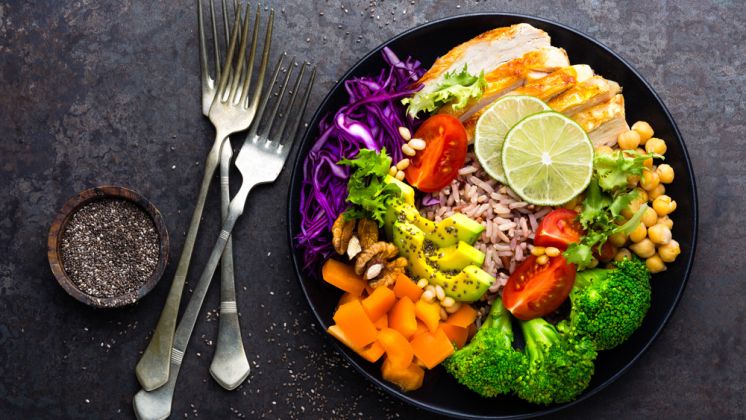What To Eat After A Run
Expert advice on refuelling after the long run in your marathon training plan

Sign up for workout ideas, training advice, reviews of the latest gear and more.
You are now subscribed
Your newsletter sign-up was successful
The long run is the key to any successful marathon training schedule, and even if you don’t have a particular event on the horizon, heading out for a couple of hours of running one day a week is great way to keep your body and mind in shape.
However, if you fail to refuel properly afterwards, it can knock your body for six and you’ll spend the next couple of days shuffling around as your muscles recover. To make sure that doesn’t happen to you, follow this expert advice from sports dietitian and OOFOS ambassador Alexandra Cook.
What do people need to eat to refuel after a long run?
It’s not just about focusing on one nutrient – balance is key. If you follow the three Rs – rehydrate, refuel, rebuild – you will ensure you are nailing your recovery every time.
Rehydrate with water and/or an electrolyte drink. You need to take on fluid at a rate so that you are not peeing it straight out: as soon as you have finished your run drink 500ml, then drink little and often until your urine is clear or you have reached your pre-run weight.
Refuel with carbohydrates, but that doesn’t just mean shovelling down as much pasta as possible! Ensure you eat a well-balanced meal hitting all the main food groups within an hour of finishing your exercise. That means a portion of protein, carbohydrate and half a plate of veggies or salad. Simple but effective!
If you have less than eight hours between training sessions, or you have done a gruelling fasted session, you need to take on approximately 1g carb per kilogram of bodyweight each hour for three to four hours to maximise glycogen synthesis. This way you will ensure your glycogen stores are as restored as much as possible for the next session. If you have 24 hours or more between sessions, you refuelling strategy can be a little more relaxed.
Rebuild with protein. Protein is not essential for immediate post-session recovery but plays a large part in long-term recovery and adaptation to training. Get into the habit of having approximately 20g of protein after a run, and then at each meal and snack for the remainder of the day to get your recovery right.
Sign up for workout ideas, training advice, reviews of the latest gear and more.
How soon after your long run should you eat?
This really depends on when your next training session is. If you have less than eight hours before your next session then you need an immediate post-run snack within 30 minutes of finishing, followed by a balanced meal in the next hour or so. The sooner you eat the faster you will replenish those depleted glycogen stores ready for your next session.
However, most of us have at least 24 hours before our next run so we have longer to get our fuel stores replenished. As long as you are eating a balanced meal within 60-90 minutes of finishing your run and continue to eat adequate carbs for the remainder of the day matching your daily training requirements, you will ensure you are well recovered for your next run.
Depending on their training load, an endurance runner should have anything between 3g and 12g of carbs per kg of bodyweight per day. For example, if you are doing approximately one hour of exercise a day, you should be aiming for 5-7g of carbohydrate per kg of bodyweight. For a 70kg runner this would be 350-490g of carbohydrate per day. The higher the training volume, the higher the demand for carbohydrate.
See related
Do people need to consider what they should eat straight after short, hard runs like interval sessions, or can they get what they need from their regular diet?
High-intensity training can deplete your glycogen stores quickly so runners must be as attentive to refuelling strategies after these type of sessions as they are with long runs. Again, the right strategy depends on your next training session. If you have 24 hours or more to recover before your next session then a post-training meal within an hour or so of finishing will be adequate to kick-start the recovery process. If you are training again sooner, have a carb- and protein-rich snack straight after your session followed up by carb-rich meals and snacks to ensure glycogen reserves are replenished before your next run.

Nick Harris-Fry is a journalist who has been covering health and fitness since 2015. Nick is an avid runner, covering 70-110km a week, which gives him ample opportunity to test a wide range of running shoes and running gear. He is also the chief tester for fitness trackers and running watches, treadmills and exercise bikes, and workout headphones.
